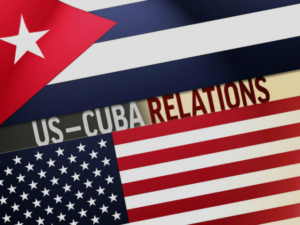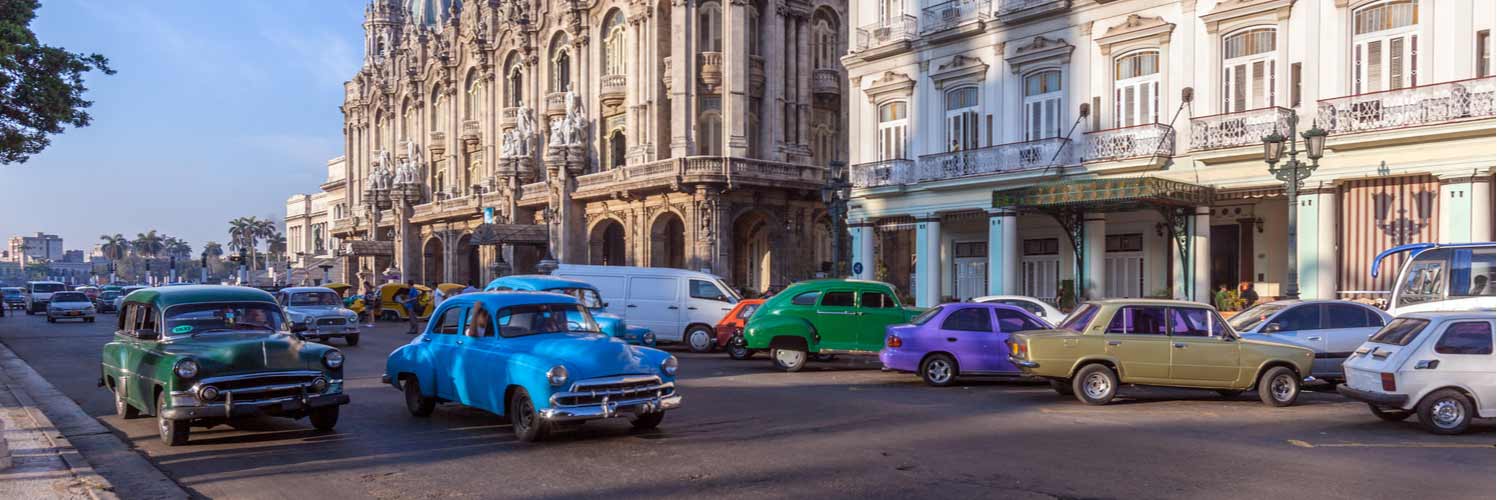 ESTADOS UNIDOS INCREMENTA VISITAS DE FAMILIARES CUBANOS EN 2019.
ESTADOS UNIDOS INCREMENTA VISITAS DE FAMILIARES CUBANOS EN 2019.
A pesar del deterioro de las relaciones diplomáticas y la limitación de sus servicios consulares en La Habana, Estados Unidos incrementó en un 40 porciento el otorgamiento de visas a ciudadanos cubanos para intercambios profesionales y visitas familiares durante 2019, indican reportes oficiales.
Las estadísticas del Departamento de Estado compiladas por CiberCuba muestran que en el período fiscal recién concluido, las autoridades estadounidenses concedieron 10,191 visas de visitantes en las categorías de invitaciones profesionales, intercambios culturales y negocios (B-1) y visitas familiares (B-2), un notable incremento con respecto a las 6.959 otorgadas en 2018.
A su vez, las cifras señalan un ligero aumento hasta 7,783 en las visas de inmigrante, comparadas con las 6, 292 que se entregaron a los solicitantes cubanos en el año precedente. El reporte de la Oficina de Asuntos Consulares del Departamento de Estado abarca el año fiscal 2019, que concluyó el pasado 30 de septiembre.
Por segundo año consecutivo Estados Unidos incumplió la entrega de 20,000 visas anuales para inmigrantes cubanos, rompiendo los acuerdos establecidos con La Habana tras la crisis de los balseros de 1994. Las conversaciones migratorias han sido canceladas por la administración Trump desde el pasado año y el estado de las relaciones se encuentra en su punto más bajo desde los días de Bahía de Cochinos y la Crisis de Octubre, según opinan expertos.
Un funcionario del Departamento de Estado reiteró a CiberCuba que se prosigue trabajando conjuntamente con el Departamento de Seguridad Nacional (DHS) para realizar los “ajustes necesarios” y valorar las nuevas solicitudes bajo el Programa de Reunificación de Familias Cubanas (CFRP). “Mantenemos el procesamiento de casos abiertos de reunificación familiar en nuestra embajada en Guyana desde junio de 2018”, apuntó el funcionario.
Más de 20,000 solicitudes del CFRP — conocido como Programa de Parole- se encuentran estancadas tras la escalada de las tensiones diplomáticas, lo cual ha generado múltiples protestas por parte de familiares en Estados Unidos. Un centenar de personas con reclamaciones pendientes se manifestaron este domingo en un emblemático monumento de la Calle Ocho de Miami para exigir la reapertura del programa, establecido en 2007.
Solo el 5.3 % de las visas de visitantes de 2019 se tramitaron en la embajada de La Habana, donde el personal diplomático ha quedado reducido a unas docena de funcionarios. El resto se gestionó en legaciones y consulados de Estados Unidos en un tercer país, como sucede con la mayoría de las solicitudes desde hace dos años.
No obstante, resulta significativo el alza en las visitas familiares, teniendo en cuenta que desde el pasado 18 de marzo Estados Unidos eliminó las visas por cinco años con entradas múltiples para cubanos, alegando “cuestiones de reciprocidad”. Los residentes en la isla solo pueden obtener visas por tres meses y una única entrada.
VISAS DE NO INMIGRANTE PARA VISITAS FAMILIARES, INTERCAMBIOS CULTURALES Y VIAJES DE NEGOCIOS (2014-2019)
(2014)–41,001 (2015)-22,797 (2016)-14,291 (2017)-16,335 (2018)-6,959 (2019)-10,191
Fuente: Oficina de Asuntos Consulares del Departamento de Estado
 UNITED STATES INCREASE VISITS OF CUBAN FAMILIES IN 2019.
UNITED STATES INCREASE VISITS OF CUBAN FAMILIES IN 2019.
Despite the deterioration of diplomatic relations and the limitation of its consular services in Havana, the United States increased the granting of visas to Cuban citizens by 40 percent for professional exchanges and family visits during 2019, official reports indicate.
State Department statistics compiled by CiberCuba show that in the fiscal period just concluded, the US authorities granted 10,191 visitor visas in the categories of professional invitations, cultural and business exchanges (B-1) and family visits (B-2) , a notable increase over the 6,959 granted in 2018.
In turn, the figures indicate a slight increase to 7,783 in immigrant visas, compared to 6,292 that were delivered to Cuban applicants in the previous year. The report of the Office of Consular Affairs of the Department of State covers the fiscal year 2019, which ended on September 30.
For the second consecutive year, the United States failed to deliver 20,000 annual visas for Cuban immigrants, breaking the agreements established with Havana after the 1994 boat rafts crisis. Migration talks have been canceled by the Trump administration since last year and the state of relations is at its lowest point since the days of Bay of Pigs and the October Crisis, experts say.
A State Department official reiterated to CiberCuba that work continues with the Department of Homeland Security (DHS) to make the “necessary adjustments” and assess the new applications under the Cuban Family Reunification Program (CFRP). “We have kept processing cases of family reunification open at our embassy in Guyana since June 2018,” the official said.
More than 20,000 applications from the CFRP – known as the Parole Program – are stalled after the escalation of diplomatic tensions, which has generated multiple protests by family members in the United States. One hundred people with pending claims demonstrated this Sunday in an emblematic monument on Miami’s Eight Street to demand the reopening of the program, established in 2007.
Only 5.3% of the 2019 visitor visas were processed at the Havana embassy, where diplomatic personnel have been reduced to a dozen officials. The rest was managed in legations and consulates of the United States in a third country, as is the case with most applications for two years.
However, the increase in family visits is significant, taking into account that since last March 18 the United States eliminated visas for five years with multiple entries for Cubans, alleging “reciprocity issues”. Residents on the island can only obtain visas for three months and a single entry.
NON-IMMIGRANT VISAS FOR FAMILY VISITS, CULTURAL EXCHANGES AND BUSINESS TRAVELS (2014-2019)
(2014) –41,001 (2015) -22,797 (2016) -14,291 (2017) -16,335 (2018) -6,959 (2019) -10,191
Source: State Department Office of Consular Affairs
Agencies/ CiberCuba/ Wilfredo Cancio/ Internet Photos/ Extractos/ Excerpts/ Arnoldo Varona/ www.TheCubanHistory.com
THE CUBAN HISTORY, HOLLYWOOD.








